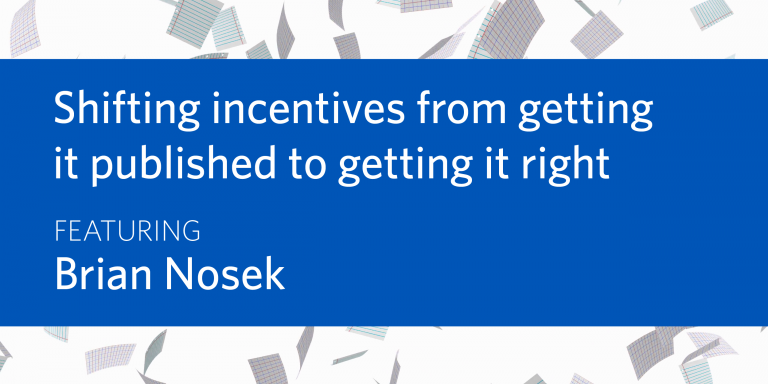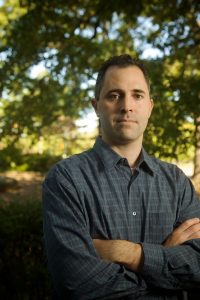
Join us for an evening of stimulating discussion on the rewards of open science with Brian Nosek, Executive Director and Co-Founder of the Center for Open Science.
Can’t make it? This event will be streamed live via webcast at this link and available to watch later.
This event will also be available on UBC’s Okanagan Campus through a video conference. RSVP for the Okanagan event.
Shifting incentives from getting it published to getting it right
Thursday, February 28, 2019
5:30 – 7:00 pm
CHBE – 101, Chemical and Biological Engineering Building
2360 East Mall, Vancouver, BC
Light refreshments will be provided.
About the Talk
The currency of academic science is publishing. Producing novel, positive, and clean results maximizes the likelihood of publishing success because those are the best kind of results. There are multiple ways to produce such results: (1) be a genius, (2) be lucky, (3) be patient, or (4) employ flexible analytic and selective reporting practices to manufacture beauty. In a competitive marketplace with minimal accountability, it is hard to avoid (4). But, there is a way. With results, beauty is contingent on what is known about their origin. With methodology, if it looks beautiful, it is beautiful. The only way to be rewarded for something other than the results is to make transparent how they were obtained. With openness, I won’t stop aiming for beautiful papers, but when I get them, it will be clear that I earned them.
About the Speaker

Dr. Brian Nosek on the University of Virginia campus
Brian Nosek is Co-Founder and Executive Director of the Center for Open Science (COS) that operates the Open Science Framework. COS is enabling open and reproducible research practices worldwide.
Brian is also a Professor in the Department of Psychology at the University of Virginia. He received his Ph.D. from Yale University in 2002. He co-founded Project Implicit, a multi-university collaboration for research and education investigating implicit cognition–thoughts and feelings that occur outside of awareness or control. Brian investigates the gap between values and practices, such as when behavior is influenced by factors other than one’s intentions and goals. Research applications of this interest include implicit bias, decision-making, attitudes, ideology, morality, innovation, barriers to change, open science, and reproducibility. In 2015, he was named one of Nature’s 10 and to the Chronicle for Higher Education Influence list.
This event is co-hosted by UBC’s Department of Psychology and Office of the Provost.